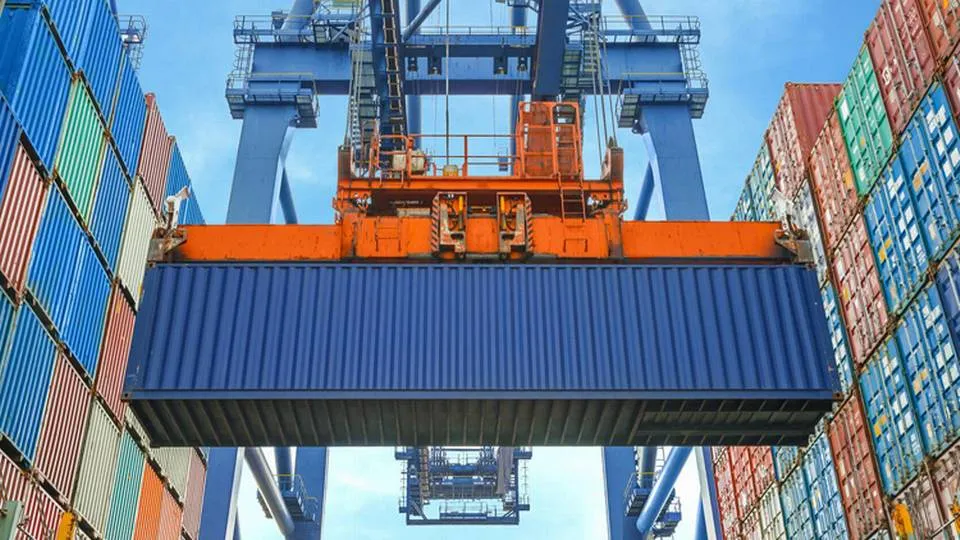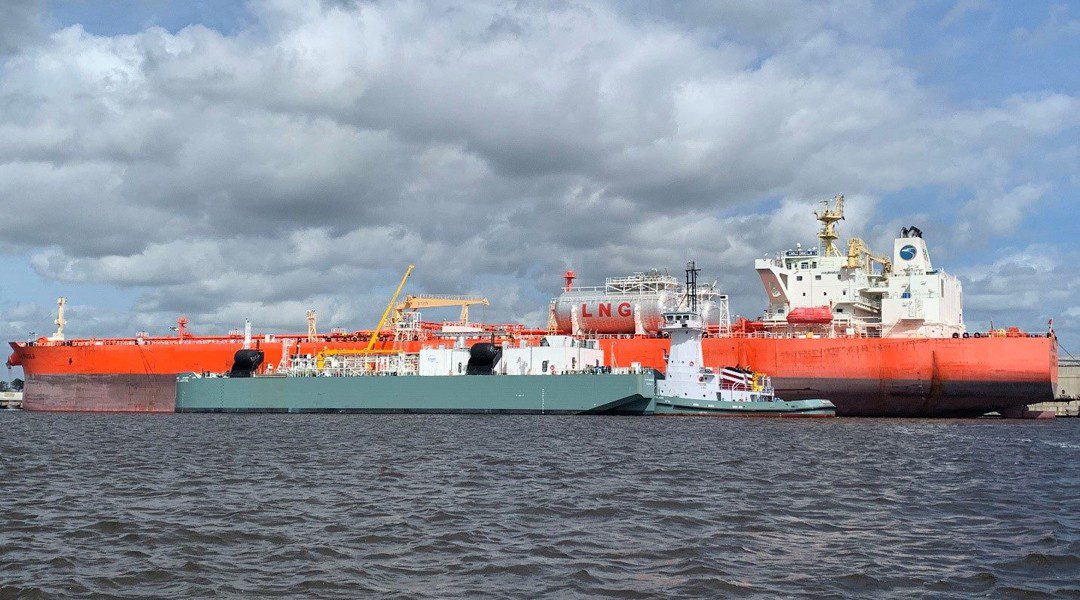Several shippers have criticized the new fuel surcharge for container carriers, which must meet the sulfur regulations from 2020. Historically, shippers have been naturally suspicious when carriers call a surcharge fair and transparent, Global Shippers Forum criticizes.
 Photo: Port of Rotterdam
Photo: Port of Rotterdam
The new fuel surcharge from container carriers has not been well received by several shippers.
Maersk Line was the first to announce its new BAF model. CMA CGM and MSC followed after. Hapag-Lloyd is also working on a similar mechanism which will cover the comprehensive expenses associated with the global sulfur regulations taking effect Jan 1. 2020, says the German carrier to WPO.
However Global Shippers Forum (GSF) is far from satisfied with the new method. Secretary general James Hookham stresses that it is entirely expected that customers must also pay part of the new environmental costs but says the surcharge lacks transparency, according to a press release which refers to data released by Maersk last week.
“Given historical experiences with surcharges, shippers are naturally suspicious over something shipping lines say is ‘fair, transparent and clear’. GSF will be taking this piece of financial engineering apart piece by piece as we suspect this has more to do with rate restoration than environmental conservation,” he says.
Seeking discussion
Chinese shippers have recently criticized the measure and do not believe that the sulfur requirements, which will increase fuel costs by billions for container carriers, are eligible as a special expense item. Shipowners have known about the new regulations for a long time, they argue.
What also disappoints shippers is the lack of negotiation about the timing and the structure of the charge.
James Hookam, general secretary, Global Shippers Forum
One of the world’s largest shippers, Electrolux has also been critical of the measures and vice president for global logistics Bjørn Vang Jensen took to a LinkedIn post to detail the evolution of the BAF mechanism and the opportunities for shippers.
Shippers today have far more information about, for example, rates and bunker prices than before and therefore the discussions between shippers and carriers are also much more “adult” he writes. The response to the global sulfur requirements is transparency and discussion, he says.
“So here’s my plea to carriers: Let’s talk! We all want to protect our planet. The IMO rules make a ton of sense. I happen to work for a company which is on top of the Dow Jones Sustainability Index every year. Believe me, I get it, WE get it. But that doesn’t mean that I, or any of my peers, will (or should!) roll over and accept what is handed to us,” he writes on LinkedIn, stressing that the company will take its share of the responsibility.
Customers will cover the bill
Maersk Line expects the 2020 global sulfur regulations to increase fuel costs approximately USD 2 billion a year. Just like other carriers, Maersk Line has not tried to hide the fact that customers and ultimately consumers will pay that extra bill.
“USD 2 billion is not something a shipping line which is not performing fairly well today can absorb, so it is only fair to expect that it has to be shared by anyone who benefits from the global trade,” said Silvia Ding, head of trade management, to WPO in connection with the new BAF mechanism, which comes into force next year.
According to Ding, several customers have welcomed the carrier’ss new calculation, and soon the carrier will commence new contract negotiations with its customers. And the new BAF structure will be non-negotiable here as it has to be the same standard for everyone. However, this does not mean negotiations are impossible on other parameters, she says.
“What also disappoints shippers is the lack of negotiation about the timing and the structure of the charge. It would have been better if Maersk had discussed its plans with individual customers in the course of confidential contract reviews, rather than just publishing something that wouldn’t be out of place in the puzzles section of your daily newspaper,” says Hookham from Global Shippers Forum.
English Edit: Lena Rutkowski & Ida Jacobsen
MSC follows suit with new bunker adjustment factor
Maersk rivals agree: The price of cleaner fuel should be pushed on to customers






